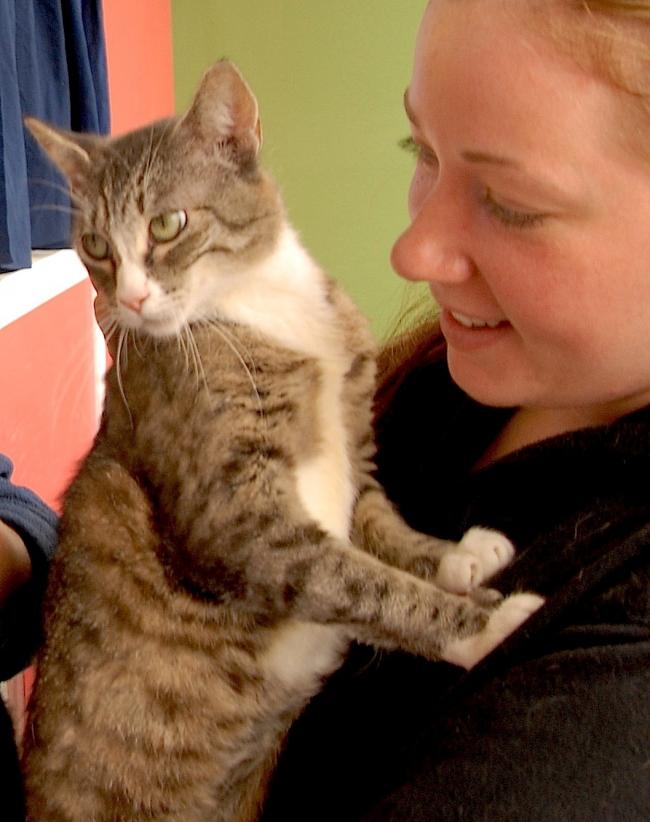Calling all cats—visit your vet.
PET OF THE MONTH. “Boots” wants to walk right out the door of the new Burien CARES shelter and right into a loving home. If you can give “Boots” or another lonely pet a good home, call CARES at 206-812-2737 or visit www.petfinder.com/pet-search?shelterid=WA534.
Tue, 08/07/2012
Dr. Jon Cullom
MARINE VIEW VETERINARY HOSPITAL
In the last three months, three cats have been presented to our veterinary hospital by their owners, dead on arrival.
These were not outdoor cats exposed to potentially fatal circumstances on a daily basis nor were they of an advanced age--indeed they were 4, 5, and 6 years old. There was no record of chronic disease and all were perceived by their owners to be in perfect health.
An autopsy conducted on one of the three revealed advanced heart disease and, though unconfirmed, we suspect that the other two cats were afflicted with a similar disorder. Three months, three dead cats, and three devastated owners with one common connection-- none had seen a veterinarian for an exam in the past three years.
Oh how we love our feline companions! They entertain us with back flips and other acrobatics as they chase the laser light or the feather on a stick. They amaze us as they leap onto the mantle and land amongst the family pictures and fragile heirlooms, never disturbing a one.
They alter their normal routine to lie by our side as we recover from illness or surgery. Our affection for them makes tolerable the 5 a.m. request for food and inspires immediate forgiveness when they plop themselves in the middle of our newspaper or computer keyboard.
However, despite an outwardly healthy appearance disease can still be lurking internally. Cats are masters at masking illness-- they have not evolved as far from their ancestors as dogs have and as a result are less dependent on us.
Even the most committed cat owner will at times struggle to witness the most basic acts such as eating or using the litter box. So it certainly comes as no surprise that a feline friend could effectively hide subtle symptoms such as an increase in breathing rate, weight loss, or a change in mood or activity levels.
And though this tale centers around three young cats with undetected heart disease, it could just as easily be about the cat that continues eating in the face of painful dental disease or the cat that just does not seem to be able to easily execute the same leaps that it used to make because of chronic arthritis which happens to be present in up to 65 percent of older cats.
The common thread running through all of these instances is that since the patient cannot talk to us, they will continue to seem normal until the disease in question is more advanced and signs are more obvious. The consequence of this is that treatment is often made more difficult and expensive.
The message is clear: the value of a thorough veterinary examination is huge! Whether it is a cat who is gaining too much weight or one which is suffering from a potentially fatal disease, early detection is the secret to a prolonged, pain free life.
If the cats in this story had been examined regularly, it is very likely they would be happy and healthy today, sparing their families the anguish of losing a cherished friend.
The bond between an owner and a cat is an amazing thing which helps make us whole. Because they will not share their problems with us it is up to us to be their advocate in health. Give them the benefits of early disease detection by scheduling a veterinary checkup today.
(Truth about Cats & Dogs is a monthly column written by local veterinarians. Participating hospitals are Marine View Veterinary Hospital in Des Moines, Des Moines Veterinary Hospital and Burien Veterinary Hospital.)


